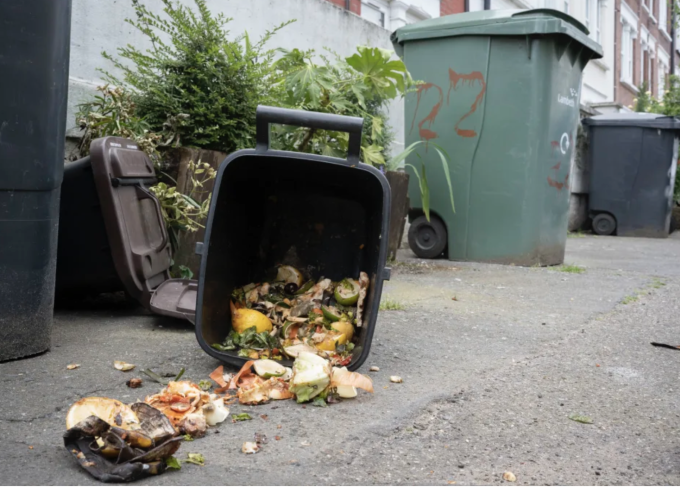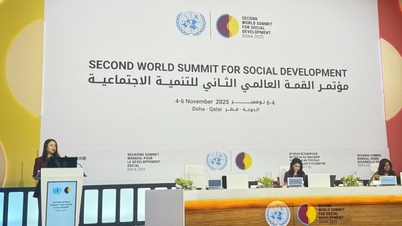The latest United Nations report shows that in 2022, the world wasted 1.05 billion tons of food, equivalent to 1/5 of the food while 800 million people were hungry.
This rate is even greater if you consider the 13% of food lost during transport from farm to table.
The United Nations Environment Programme (UNEP) Food Waste Index 2024 report raises the issue of food distribution because waste is a cause of climate change. "Food waste is a global tragedy while millions of people are going hungry," said Mr. Inger Andersen, director of UNEP.

Food waste in London, UK. Photo: CNN
The report distinguishes between “lost food”, food such as rotten vegetables and spoiled meat that is discarded early in the supply chain, and wasted food thrown away by households, restaurants and shops.
Households wasted 631 million tonnes of food in 2022, accounting for 60% of the total while the food service industry accounted for 28% of the waste and retail 12%.
The average person wastes 79 kg of food each year, which means at least a billion meals are wasted in households every day. It accounts for 8-10% of global warming emissions, five times more than the aviation industry.
Food requires raw materials and fuel to become finished products, including land, water and processing systems. Most of the wasted food ends up in landfills, where decomposition creates methane (CH4), a greenhouse gas.
The report said that the problem of food waste is more serious in tropical countries because high temperatures make food preservation and transportation difficult and perishable.
Contrary to popular belief that waste is predominantly a problem in the rich world, the UN report found that the difference in food waste between high-income and middle-income countries is just 7kg per capita.
Ngoc Ngan (According to CNN )
Source







































































































![Dong Nai OCOP transformation: [Article 4] Reaching national standard products](https://vphoto.vietnam.vn/thumb/402x226/vietnam/resource/IMAGE/2025/11/11/1762825820379_4702-cac-san-pham-trai-cay-chung-nhan-ocop-nongnghiep-174649.jpeg)


![Dong Nai OCOP transition: [Article 3] Linking tourism with OCOP product consumption](https://vphoto.vietnam.vn/thumb/402x226/vietnam/resource/IMAGE/2025/11/10/1762739199309_1324-2740-7_n-162543_981.jpeg)






Comment (0)